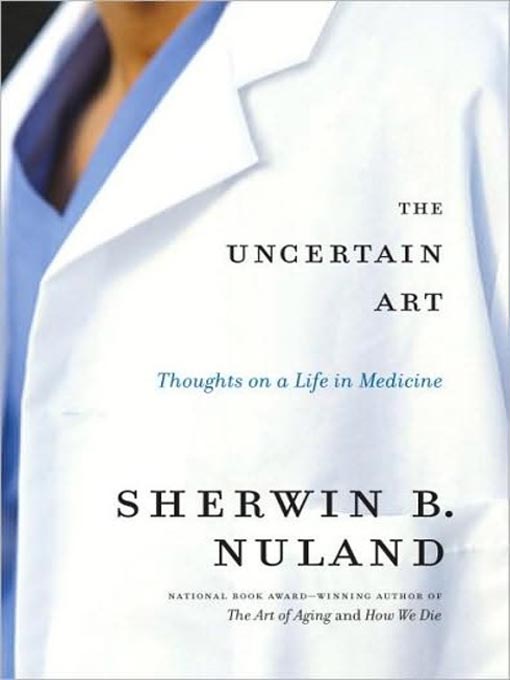
The Uncertain Art
Thoughts on a Life in Medicine
افکار در مورد زندگی پزشکی
فرمت کتاب
audiobook
تاریخ انتشار
2008
نویسنده
Michael Prichardناشر
Tantor Media, Inc.شابک
9781400176236
کتاب های مرتبط
- اطلاعات
- نقد و بررسی
- دیدگاه کاربران
نقد و بررسی

A surgeon writes about subjects related to medicine, his "uncertain art." He discourses on his experiences with acupuncture, the placebo effect, electroshock therapy, the training of doctors, and the myths of irregularity. Narrator Michael Prichard turns the timely information into something like a conversational chat, speaking without haste or loss of equanimity. Prichard dominates the technical terms, making words like "psychosociological" and "periaquaductal" seem everyday. His avuncular voice brings the disparate ideas into a coherent production suitable for all listeners, not just science aficionados. He reads the last chapter, a collection of letters to him from a dying patient, as though HE were the man waiting for a heart transplant and speaking from his soul. J.A.H. (c) AudioFile 2008, Portland, Maine

March 17, 2008
In these essays reprinted, for the most part, from the American Scholar
, Yale clinical surgery professor Nuland ponders various aspects of the practice of medicine and patient care. Opening the collection by urging his colleagues toward introspection and self-awareness, Nuland stresses that doctors make life-and-death decisions based on their own emotions, strengths, insecurities and very human needs. In another essay concerning human cloning and manipulating DNA to achieve human immortality, the author suggests we put the brakes on radical technologies whose uncertain consequences we have only begun to contemplate. On a trip to China, Nuland is intrigued by a thyroid operation performed under acupuncture where the patient was wide awake and smiling and suffered no anesthetic aftereffects after a two-and-a-half-hour excavation of her neck. Elsewhere, in an essay on grief written shortly after 9/11, Nuland calls Islamic fundamentalism “a sickness of the soul,” and in the book’s final entry, he himself grieves over a cardiac patient who died while waiting for a new heart. Although solid and perceptive, these essays are also occasionally flowery and verbose, and do not offer the rich insights of the author’s bestselling How We Die
.

























دیدگاه کاربران